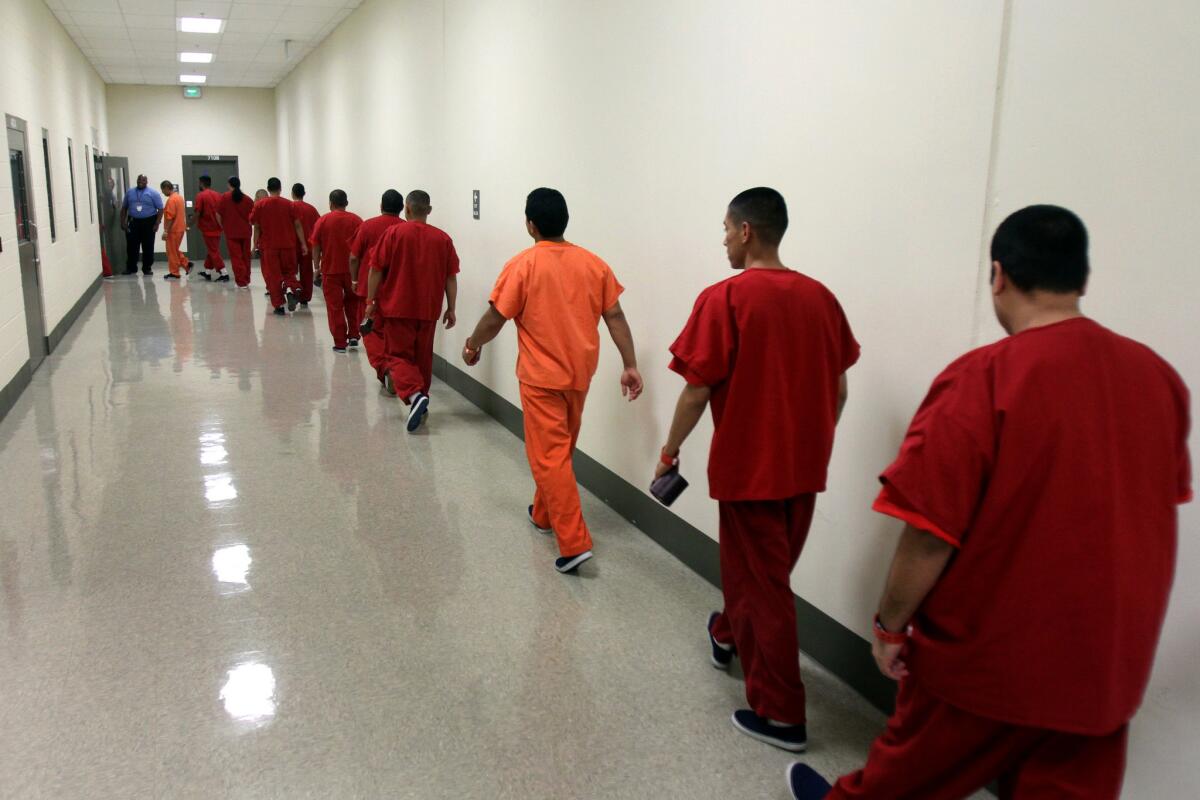Opinion: If this U.S. citizen had a lawyer, he wouldn’t have spent 1,273 days in immigration detention

A decade ago, Davino Watson pleaded guilty in a New York State court to selling cocaine, and served an eight-month sentence. As he neared release, federal immigration agents filed a detainer letter with the prison in which the Jamaican-born Watson was held, asking officials to hang on to him until they could pick him up as a suspected immigrant living in the country without permission.
It would be 3 1/2 years before Watson gained his release from federal custody — after the government finally admitted that it had made a mistake. Watson, it turned out, was a U.S. citizen, something he had asserted from the time immigration agents said they wanted to deport him. But the government screwed up the investigation.
The errors included failing to follow up on identification information Watson provided, and mistaking Watson’s father, whose naturalization in 2002 automatically granted his then-minor son citizenship, for a noncitizen with a similar name but different biographical data.
And now the federal courts have doubled down on the damage, rejecting a lower-court ruling that held the government responsible primarily because Watson didn’t file his lawsuit within two years of the start of his detention — when he was still fighting to avoid being wrongfully deported and before the government admitted it had erred.
The reason Watson stumbled over the legal hurdles is that he didn’t have a lawyer. People charged with criminal violations are entitled, under Supreme Court interpretations of the Constitution, to legal counsel, and the government must provide one if the defendant can’t afford one on his own.
But immigration law is a civil matter, and no one in civil court is entitled to a lawyer. So Watson, who didn’t graduate from high school, was forced to defend himself alone against a wrongful deportation proceeding (for a taste of how complicated the law is, read the appellate decision here). And the law also presumes that he would have enough knowledge to realize that he had to start his civil lawsuit for damages over his still-in-progress illegal detention within two years of the beginning of his detention — even though he was still being detained.
If the government is in a position to deprive someone of his or her freedom, that person ought to have a right to legal help.
There may indeed be credible legal arguments behind the appellate decision. But that doesn’t make the decision just. The federal government imprisoned an American citizen for 1,273 days because of errors committed by immigration officers. And under this appellate ruling, the government gets a pass on bearing responsibility.
Legal representation in immigration courts is crucial for people seeking permission to remain in the country, particularly those arguing that they deserve asylum under U.S. law and international compacts the government has signed. And unlike most other civil law cases, immigration proceedings often deprive people of their liberty, which places them in a different light than conventional civil proceedings.
Fairness dictates that if the government is in a position to deprive someone of his or her freedom, that person ought to have a right to legal help. In Watson’s case, it’s appalling that a U.S. citizen was held by his own government without cause. It’s even more appalling that the arcane rules of the civil courts now protect the government from liability for the time it stole from Watson.
Follow my posts and re-tweets at @smartelle on Twitter
More to Read
A cure for the common opinion
Get thought-provoking perspectives with our weekly newsletter.
You may occasionally receive promotional content from the Los Angeles Times.











